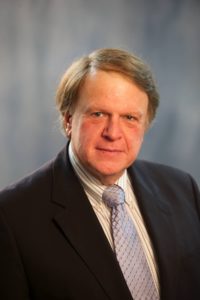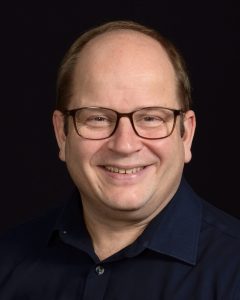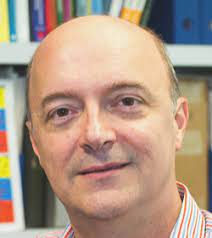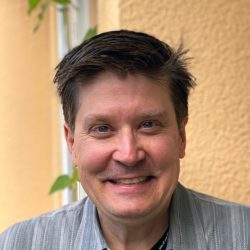Novel Smart Cities are on the planning boards of governments and investors alike, in various parts of the world. To mention Singapore and Australia. Those Cities will be designed from scratch to a specification. Undertakings on such a scale and complexity were never done yet. The development is going to pose a challenge to the design and design validation, system orchestration, growth and evolution. What do we know about the design of systems of that scale and complexity. What functionalities are going to be embedded in those systems to create a living environment enhancing living and working conditions, and fulfilling societal requirements and needs without degrading the surrounding natural environment. What solutions, technologies, and tools are available to support such an undertaking. And what is still needed?
Organizers
Panelists

John S. Baras is a Professor and Lockheed Martin Chair in Systems Engineering at the Institute for Systems Research, University of Maryland at College Park, USA. Diploma in Electrical and Mechanical Engineering from the National Technical University of Athens, Greece, 1970; M.S., Ph.D. in Applied Mathematics from Harvard University 1971, 1973.
Since 1973, faculty member in the Electrical and Computer Engineering Department, and in the Applied Mathematics, Statistics and Scientific Computation Program, at the University of Maryland College Park. Founding Director of the Institute for Systems Research (ISR), 1985 to 1991. Since 1991, Founding Director of the Maryland Center for Hybrid Networks (HYNET). Since 2013, Guest Professor at the Royal Institute of Technology (KTH), Sweden.
IEEE Life Fellow, SIAM Fellow, AAAS Fellow, NAI Fellow, IFAC Fellow, and a Foreign Member of the Royal Swedish Academy of Engineering Sciences (IVA).
Received the 1980 George Axelby Prize from the IEEE Control Systems Society, the 2006 Leonard Abraham Prize from the IEEE Communications Society, the 2014 Tage Erlander Guest Professorship from the Swedish Research Council, and a three year (2014-2017) Senior Hans Fischer Fellowship from the Institute for Advanced Study of the Technical University of Munich, Germany. In 2016 he was inducted in the A. J. Clark School of Engineering Innovation Hall of Fame of the University of Maryland, and received the 2017 IEEE Simon Ramo Medal, and the 2017 AACC Richard E. Bellman Control Heritage Award.
Professor Baras’ research interests include systems and control, optimization, communication networks, signal processing and understanding, applied mathematics, robotics, computing systems and networks, network security and trust, and model-based systems engineering.

Kenneth C. Budka, Sr. Partner at Bell Labs Consulting, has served as strategic advisor to corporate leaders and government officials world-wide, helping utilities, mining, rail and other industries modernize their communications networks to support next-generation industrial automation applications and helping transform public safety, transportation and other government services through the adoption of new information and communications technologies.
Ken was one of the driving forces behind the global adoption of commercial wireless broadband technologies for public safety communications. Ken served as Vice-Chair of the 15-member Technical Advisory Board for First Responder Interoperability, a panel of experts established by the U.S. Congress to set minimum technical interoperability requirements for the Nationwide Public Safety 700 MHz Broadband Network, FirstNet.
Dr. Budka is coauthor of the book Communication Networks for Smart Grid: Making Smart Grid Real. Ken received the Ph.D. and M.Sci. degrees in Engineering Science from Harvard University in Cambridge, Massachusetts USA and the B.S.E.E. summa cum laude from Union College in Schenectady, New York USA. He is a Senior Member of the Institute of Electrical and Electronics Engineers and holds 21 patents.

Tom Gedeon is Chair Professor of Computer Science at the Australian National University. He is formerly Deputy Dean and Head of Computer Science at ANU. His BSc and PhD are from the University of Western Australia, and Grad Dip Management from UNSW. He is twice a former President of the Asia-Pacific Neural Network Assembly, and former President of the Computing Research and Education Association of Australasia. He is currently a member of the Australian Research Council’s College of Experts. He is an associate editor of the IEEE Transactions on Fuzzy Systems, and the INNS/Elsevier journal Neural Networks.
Tom’s research focuses on bio-inspired computing (mainly neural, deep learning, fuzzy and evolutionary) and human centred computing (mainly eye gaze, wearable physiological signals, fNIRS, thermal, EEG) to construct truly responsive computer systems (biometrics and affective computing) and humanly useful information resources (hierarchical and time series knowledge), industrial (mining, defence) and social good (medical, educational) applications.

Andrew Karvonen is Associate Professor of Sustainable Urban Development at the KTH Royal Institute of Technology in Stockholm, Sweden. He received his PhD in Community and Regional Planning from the University of Texas at Austin. He conducts research on the politics and practice of sustainable urban development with a particular focus on the governance of infrastructure networks. He has completed research projects on green infrastructure networks, energy and buildings, urban experiments and laboratories, and smart cities. He is an editorial board member of Sustainability, Urban Planning, Geographies,